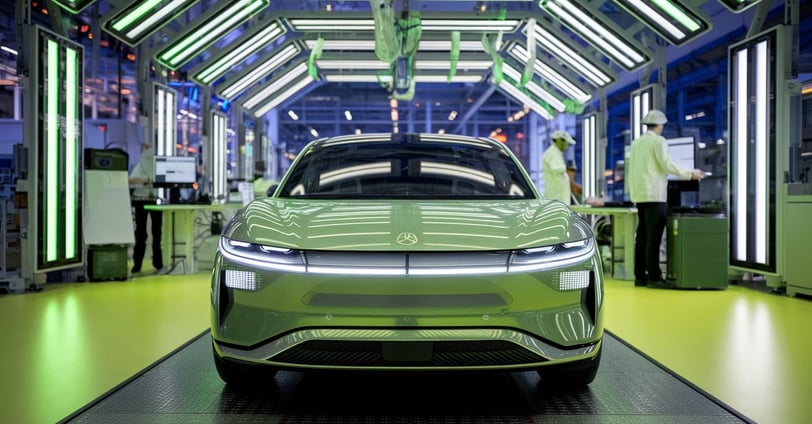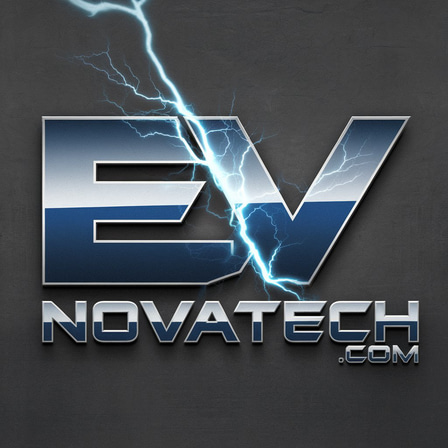Hyundai & Exide: Local LFP Battery Cells for EVs
Discover how Hyundai Motor India and Exide Industries are collaborating to manufacture locally-made LFP battery cells. This partnership is poised to revolutionize the Indian electric vehicle market and contribute to a sustainable future for the nation.
BLOG POSTEVS NEWS
evnovatech.com
12/26/20243 min read


Hyundai Motor India and Exide Industries Revolutionize India’s EV Battery Market with Local Production Partnership.
In a bold move that underscores India's growing importance in the global electric vehicle (EV) ecosystem, Hyundai Motor India Limited (HMIL) has inked a significant partnership with Exide Industries’ subsidiary, Exide Energy Solutions Limited (EESL). This collaboration is set to manufacture and supply India-made EV battery cells, a development poised to redefine the domestic EV landscape. Let’s dive into what this means for India’s transition to sustainable transportation.
A Step Towards Self-Reliance in EV Battery Manufacturing
HMIL’s agreement with Exide Energy Solutions, formalized through a binding term sheet, signals a transformative shift for the Indian EV market. By committing to source lithium-ion cells and battery packs locally, Hyundai aims to:
Enhance Domestic EV Production: With EESL’s robust manufacturing capabilities, HMIL can ensure a steady supply of high-quality, reliable battery cells tailored to their electric vehicle lineup.
Reduce Import Dependency: By prioritizing local manufacturing, the partnership aligns with the Indian government’s “Make in India” initiative, reducing reliance on costly imports.
Boost Green Energy Transition: Locally produced batteries will significantly lower the carbon footprint associated with long-distance battery shipping.
Key Highlights of the Partnership
Formalization of Intent: The term sheet solidifies HMIL’s intent to onboard EESL as its preferred supplier of lithium-ion cells and battery packs.
Catalyst for Growth: The subsequent definitive agreements are expected to fast-track the development of electric vehicles, accelerating India’s transition to sustainable mobility.
Competitive Edge: With Hyundai’s global expertise and Exide’s proven manufacturing prowess, this partnership creates a competitive advantage in the burgeoning EV sector.
Revenue Opportunities for Exide: Although specific financial details are yet to be disclosed, the collaboration offers Exide Industries a lucrative entry into the rapidly expanding EV market.
Why This Partnership Matters
The collaboration between HMIL and Exide Energy Solutions goes beyond business objectives. It signifies a collective effort towards addressing critical challenges in India’s EV journey:
1. Addressing the Battery Supply Gap
The shortage of high-performance, locally manufactured batteries has been a bottleneck for India’s EV industry. This partnership aims to resolve that by fostering indigenous production capabilities.
2. Aligning with Government Incentives
With initiatives like the Faster Adoption and Manufacturing of Hybrid and Electric Vehicles (FAME) scheme, India is pushing hard to achieve EV adoption goals. Hyundai’s collaboration with Exide directly supports these efforts by localizing the battery supply chain.
3. Promoting Technological Innovation
This partnership sets a precedent for collaborative innovation, paving the way for cutting-edge battery technologies designed specifically for the Indian market.
4. Driving Job Creation
Local production isn’t just about sustainability; it’s also a significant job creator. From factory workers to engineers, this move will contribute to economic growth and skill development in India. economic growth and skill development in India.
Industry and Consumer Impacts
For the Industry:
Encourages other automakers to invest in local supply chains.
Promotes healthy competition in the EV battery segment.
Enhances India’s position as a global EV hub.
For Consumers:
Potential for reduced EV costs due to localized production.
Improved availability of EV models.
Higher confidence in adopting electric mobility, backed by reliable battery solutions.
Looking Ahead: Challenges and Opportunities
While this partnership promises substantial benefits, challenges such as scaling production, ensuring consistent quality, and managing costs remain. However, with Hyundai’s global expertise and Exide’s established infrastructure, the venture is well-equipped to navigate these hurdles.
Opportunities:
Export Potential: Locally produced batteries could open avenues for export to neighboring markets.
Technology Transfer: Collaboration with a global leader like Hyundai could bring advanced battery technologies to India.
Sustainability Leadership: This partnership positions both companies as pioneers in India’s green energy transformation.
What is a Term Sheet?
A term sheet is a preliminary, non-binding document that outlines the main terms and conditions of a proposed agreement. It serves as a roadmap for formal negotiations, ensuring mutual understanding before signing definitive agreements.
FAQs
1. What does this partnership mean for Indian consumers?
This partnership is likely to make EVs more affordable and accessible, encouraging more consumers to switch to electric mobility.
2. How will this collaboration impact the EV market in India?
By localizing battery production, the partnership will accelerate EV adoption and reduce reliance on imported components, making India a more self-reliant market.
3. When will the benefits of this partnership be visible?
While the exact timeline depends on the execution of definitive agreements, the benefits should start materializing as soon as production begins.
4. Are there any environmental benefits to this partnership?
Yes, localized production reduces the carbon footprint associated with importing batteries and aligns with India’s green energy goals.
5. What role does Exide Industries play in this partnership?
Exide, through its subsidiary EESL, will supply Hyundai with lithium-ion cells and battery packs, leveraging its manufacturing expertise to support Hyundai’s EV production.The Road Ahead
This partnership between Hyundai Motor India and Exide Industries is a milestone in India’s journey towards a sustainable future. By fostering local production of EV battery cells, both companies are not just meeting market demands but setting an industry benchmark for collaboration and innovation.
